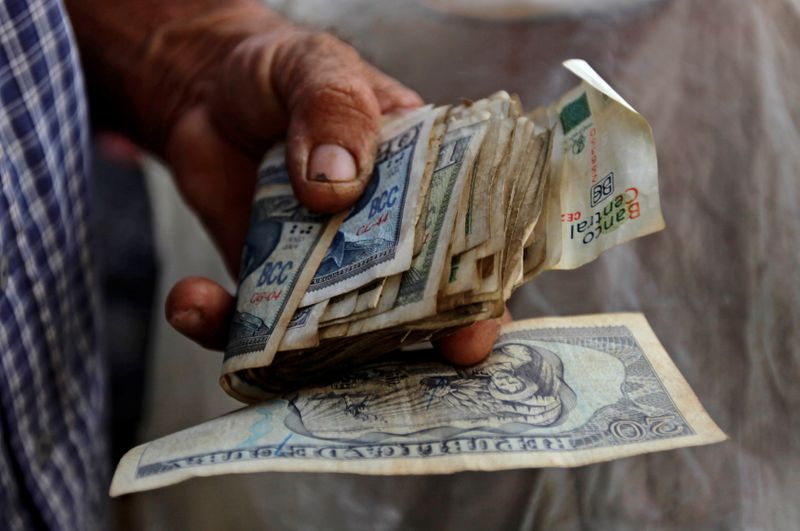By Marc Frank
HAVANA (Reuters) - Thousands of small and medium-sized Cuban businesses will be allowed to incorporate in the coming months, in one of the most important economic reforms taken by the island's Communist government since it nationalized all enterprises in the 1960s.
The reform, details of which came to light this week, will permit small and medium-sized businesses for the first time since 1968, putting an end to the legal limbo in which many have existed for years in the Soviet-style economy.
The law will also apply to small and medium-sized state firms, paving the way for an important decentralization of some activities and forcing subsidized operations to become profitable or fold, according to Cuban economists.
In the food service sector, thousands of government-subsidized eateries will either close, become cooperatives or turn into small businesses, according to a mid-level manager involved in the process who spoke on condition of anonymity. Those it keeps will become small- and medium-sized state-owned businesses competing with them.
While there have always been private farms and agricultural cooperatives in Cuba, most of the economy was in state hands until the 1990s when heavily regulated small businesses were allowed in a few areas under the rubric of self-employment, limiting their legitimacy and legal standing.
The new measures are a key part of the economic reforms undertaken by new Cuban leader Miguel Diaz-Canel over the last year, as the coronavirus pandemic and tougher U.S. sanctions pushed the shaky economy into a tailspin and shortages of food, medicine and other basic goods reached alarming proportions.
Economy Minister Alejandro Gil said in a televised presentation Wednesday evening the measures would put state and private business on an equal footing to compete, work together and create joint companies, much as in capitalist countries.
"It is a starting point for a new stage in the diversification of the economy and its development, in order to make the most of its potential," Gil said, adding that the reform would boost employment and allow the economy to rebound more strongly as the pandemic eased.
MIXED ECONOMIC MODEL
Creation of micro, small and medium-sized (MSME) businesses was fast-tracked upon approval in May by Cuba's Council of Ministers.
The new MSMEs will be able to access the state wholesale system, import and export, set prices and attract foreign investment, but only within a state-dominated business environment where such activities will remain heavily regulated, according to various ministers who appeared with Gil.
Companies are limited to no more than 100 employees and individuals can only own a single company, according to a decree law published by the Council of State this month.
Nevertheless, it is a welcome step for many entrepreneurs and most economists who have long called for the reform.
"Cuba is moving towards a mixed economic model, at least in terms of employment," said Pavel Vidal, a former Cuban central bank economist who teaches at Colombia's Pontificia Universidad Javeriana in Cali.
"With this opening, in a few years the non-state sector will represent more than 50% of total employment in the economy," Vidal said, adding that "still much more needs to be done."
Cuba's economy, which has stagnated for years, contracted by 10.9% in 2020 and declined another 2% in the six months through June, compared with the first six months of last year. The economy remains heavily reliant on tourism and imports.
Thousands of people in cities across the Caribbean island took to the streets on July 11 to protest living conditions in what were the biggest anti-government demonstrations since the 1959 revolution. Diaz-Canel has blamed the unrest on the United States, saying protesters were manipulated by U.S.-orchestrated social media campaigns.

The private sector in Cuba has gradually expanded since the 1990s to encompass more than 600,000 self-employed license holders in many sectors and includes business owners and their employees, tradespeople and taxi drivers.
The so called non-state sector, including agriculture, provides work for a third of the 4.9 million officially employed Cubans in the labor force, with the remainder working for the state.